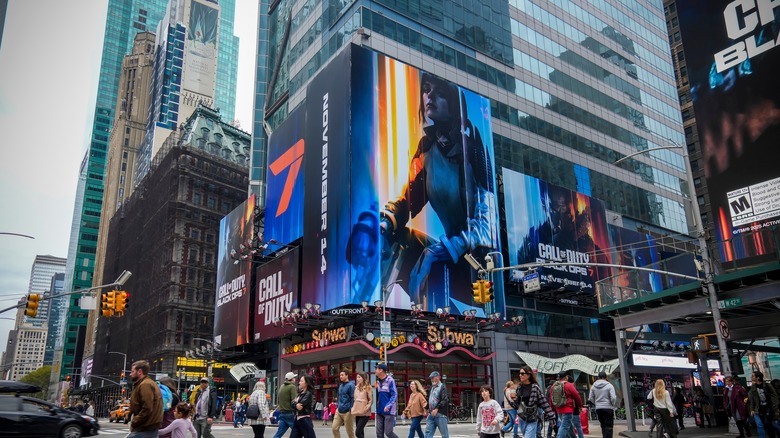Call Of Duty: Black Ops 7's Use Of AI Has US Congressman Worried
As generative AI gradually becomes more prolific, picking up features like website creation and coding assistance, it has started to penetrate into what was previously the exclusive realm of human creatives, such as the finer elements of video game development. For example, earlier this year, Nvidia debuted a system that would use GenAI to create humanlike NPCs games like "PUBG." A particularly prolific recent example of this is the large amount of GenAI-created artwork that has been spotted by players in the newly-released "Call of Duty: Black Ops 7," which Activision Blizzard did eventually admit to following public outcry.
The presence of GenAI art in such a major release has some worried that human workers are being gradually cut out of this massive business sector, including United States Congressman Ro Khanna. On his personal X, formerly Twitter account, California Congressman Khanna responded to a tweet highlighting the presence of GenAI artwork within "Black Ops 7's" core assets, particularly the game's calling cards, posters, and reward icons.
Call of Duty: Black Ops 7 uses a large amount of AI-generated artwork across core assets (calling cards, posters, reward icons) instead of human-crafted art—despite being a major blockbuster title charging full price. pic.twitter.com/vGbtG8NYM7
— Pirat_Nation 🔴 (@Pirat_Nation) November 14, 2025
"We need regulations that prevent companies from using AI to eliminate jobs to extract greater profits," Congressman Khanna wrote. "Artists at these companies need to have a say in how AI is deployed. They should share in the profits. And there should be a tax on mass displacement."
Ro Khanna suggests regulations to prevent GenAI from supplanting workers
Following the initial outcry from players in regards to the GenAI artwork within "Black Ops 7," Activision Blizzard issued a statement to several prominent gaming publications including IGN and PC Gamer clarifying that it uses "a variety of digital tools, including AI tools, to empower and support our teams to create the best gaming experiences possible for our players."
In spite of Activision Blizzard's admission, the presence of GenAI in a $70 game hasn't sat particularly well with players, with users on the "Black Ops 7" subreddit lamenting that developer Treyarch's actual artists are effectively being sidelined in favor of cheap artwork vaguely reminiscent of the works of Studio Ghibli. GenAI-made art has been a recurring sticking point for this entire sector, to the point that even other GenAI tools like Gemini have begun adding features to identify AI-made images.
Congressman Khanna tweeted further on the matter following his initial post, opting to cite several proposals for handling GenAI in the tech sector from Nobel Prize Laureate Daron Acemoglu, winner of 2024's Prize for Economic Sciences.
"Here is what Nobel Laureate Acemoglu proposes: Tax reforms to discourage excessive automation. Guardrails for worker input before deployment. Not a Luddite complete ban. Support unions and workers to bargain for workers benefitting from productivity gains."
Congressman Khanna's suggestions seem to reflect a stance that GenAI does have a place in the tech and creative sectors. That said, substantial regulation will need to be put in place both to ensure that human workers aren't muscled out entirely and that consumers are getting the actual value they want when paying for a $70 video game.

